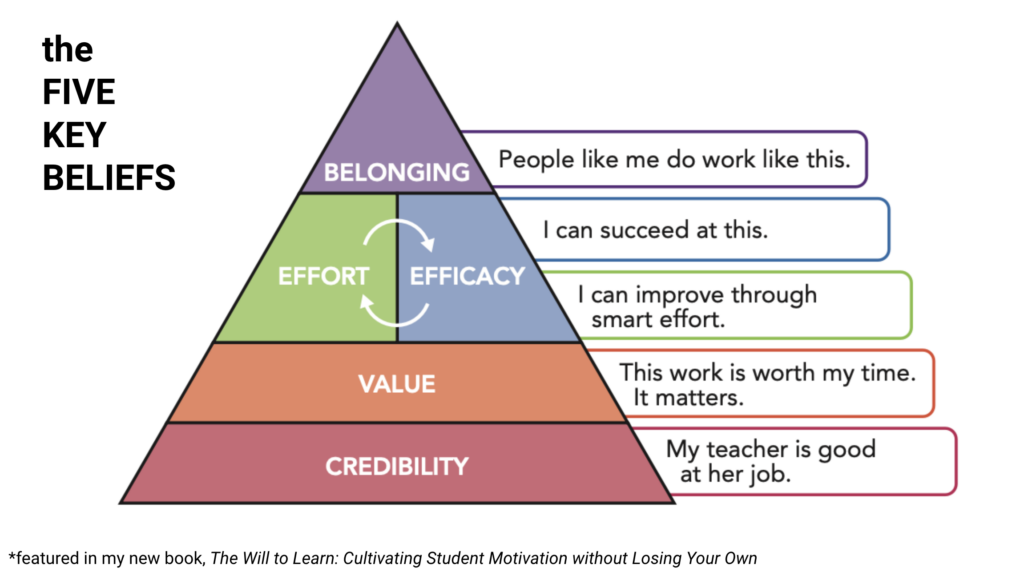Before I get into this story from my parenting, let me note three important points:
- I have no dreams of my children being top in their class or “exceptional” in any other way that the world measures. This is because I know what is true: that they are exceptional just as they are. Never has the universe seen such beings as them. Their dignity and worth is based not on their performance but on their personhood.
- Because of my certainty in their inherent dignity and value, when it comes to school, my hope is that they will know the productive and enjoyable work of learning, and that they will apply themselves with no excuses as best they can while enjoying the process as they go.
- And since I know that all sounds very noble, let me state the obvious: my parenting is deeply imperfect and marked with hardship and failure just as yours may be. (And if you're not a parent, switch out parent for teacher and children for students.)
Now, for the story.
Every weekday morning, I drive two of my daughters to their school about fifteen minutes from our house. Both have spelling lists each week, and both have teachers who give a pretest and a test on the lists each week.
When they first started at the school, my daughters felt stressed about these lists and didn't do very well on them. When I learned of this, I told them not to fret and that we'd start to use our drive time to school to practice the lists.
The method that we use for practice is unremarkable: I hold the list in my hand, and I read one word at a time, and the daughter whose list it is attempts to spell it out loud.
- When they make a mistake, I sometimes give immediate feedback as soon as they say the wrong letter, and I sometimes give feedback after the word is done.
- When I see a pattern in their mistakes, I'll point it out explicitly (“Those silent letters are getting you.”) or I'll ask them, “What do you think is the challenge pattern in the list this week?”*
- As we're going through the list, I'll try to remember the ones my children are getting wrong, and then I'll loop back to those at the end of the test. (I've noticed lately that my daughters will do this on their own now when we finish the list.)
And really, that's it. We do this 2-3x per week, depending on whether my children want to do it or not. Typically, they want to do it.
“Well Dave, how do you get your kids to want to work on spelling?”
It really is a Five Key Beliefs thing.

- Credibility: Especially early on in this process, I asked my children how their pretests and tests go. This signals to them that I care. And, I share with them any tricks I use for remembering spellings. This signals competence. And when they do well, I get really excited.
- Value: I try to emphasize to my children that it's fun to get better at spelling. I don't talk to them AT ALL about how they'll “use” spelling someday because I want them to see that education is about so much more than its utility. Instead, I want to keep pointing their hearts to the good feeling that comes with working at something challenging and improving at it.
- Effort & Efficacy: Rather quickly, my daughters have come to see and rely on the gentle, robust power of the testing effect when it comes to memorization. They learn what research has shown us happens when we give our minds practice at retrieving information. As we've gone, they've both shifted from 50-60% on pretests to 80-95%, and I've taken care to gently point them toward how their consistent, simple effort — the car-ride testing — has led to these results.
- Belonging: I've not tried to get my children to identify as great spellers or anything like this. Rather, I've tried to get them to identify as the kinds of people who work at tricky things and who make mistakes and learn from them. Whenever I do sense them putting too much identification with the score, I push against that: “Woah, that test result seemed to really bug you. How come? … Well listen, it's just a test result. It's not you. You're great. And I'm proud of you for identifying where your mistakes came from.”
Yes. So, that's basically it. If you have any questions, I'd love to chat about them in the comments section of this blog post.
Best,
DSJR
*I'm very grateful for whatever spelling curriculum their school is using because each list does have a pattern (e.g., an “er” sound, silent letters, ending “y” sounds — I don't know what to call them, but I can see the patterns and talk about them with my kids).
**The title of this post is inspired by the Haruki Murakami memoir I've been reading recently. I recommend it.
Alan Sloterbeek says
Thank you for your insightful and practical examples both in these articles and the course I have been taking online. You have a fresh way of presenting things I have known and observed but needed to be reminded of and encouraged to take a look at again. I am wondering how long I will have access to your online class. I would like to be able to look back at some of it after I get into your book this summer.
Dave Stuart Jr. says
You’ll have access to it for life, Alan